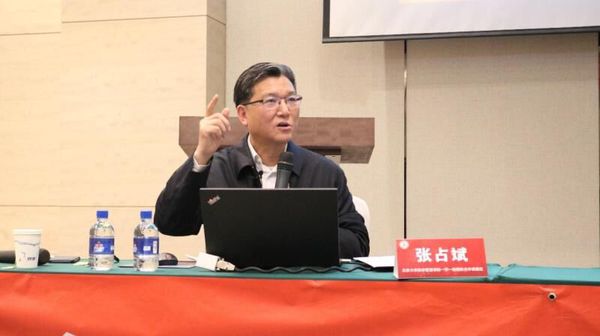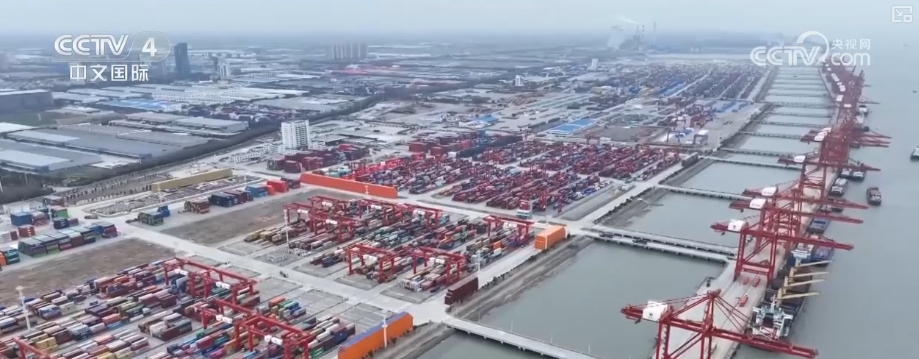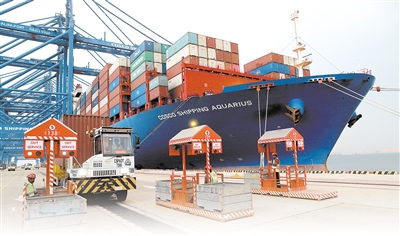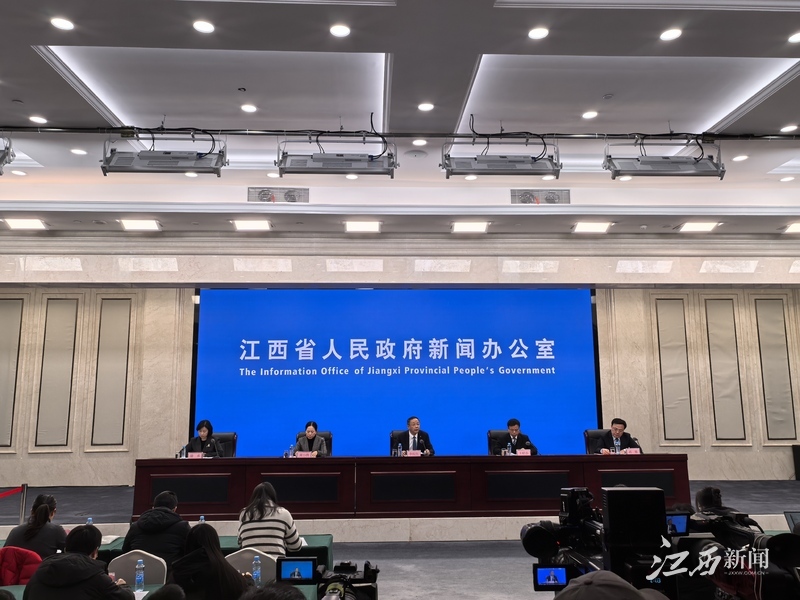Zhou Bo: It Is Probably Futile To Emphasize Sino-US Cooperation, But The Two Sides Should Reach A Consensus
Zhou Bo: It Is Probably Futile To Emphasize Sino-US Cooperation, But The Two Sides Should Reach A Consensus
No matter who stays ahead of the United States and China, the gap between the two largest economies will be very small. This means that the competition between them may indeed intensify, but cooperation will not cost any party too much. China and the United States have not become enemies yet
China and the United States are the two largest economies and military powers in the world, and the world's appearance in the 21st century depends largely on how China and the United States live together. In theory, coexistence between China and the United States should be easier than coexistence between the two old enemies of the United States and the Soviet Union during the Cold War. However, this may not be the case.
During the Cold War, the spheres of influence of China and the United States were clearly divided, which allowed the two sides to avoid direct conflict. However, in China's exclusive economic zone, there is no buffer zone for ships and aircraft between China and the United States, and both sides often encounter situations.
In addition, during the Cold War, the United States and the Soviet Union achieved a strategic balance of power of "mutual guaranteed destruction" through mutual nuclear threats, and this balance of power did not exist between China and the United States. Although in the Western Pacific, the Chinese military has made significant progress in the past few decades, causing the gap between China and the United States to gradually narrow the gap in military strength and the situation gradually develops in a direction that is beneficial to China.
Strive to make the Sino-US competitive and cooperative relationship controllable
The zero-sum policy of "Make America Great Again" (MAGA) implemented by President Trump after his re-election has put the world in more turmoil and uncertainty. His tariff war on the world is just an example. The president, who is more focused on transactions than ideology, does not seem to have a clear policy toward China.
One question is, how will he deal with the hawks against China around him? At the Shangri-La dialogue in May 2025, when U.S. Secretary of Defense Hegsey's speech on a comprehensive attack on "Communist China", the author couldn't help but think about whether Trump wants to play the role of a "good policeman" and let the Chinese hawks around him play the role of a "bad policeman"?
On May 31 this year, US Defense Secretary Heigseth delivered a speech at the Shangri-La Dialogue, exaggerating China's threat to foreign media
During the dialogue, Hegseys spared no effort to describe China's threats as true and credible and "imminent". This forms a 180-degree reversal with his predecessor Austin's stance that conflict was not "imminent" or "inevitability" in conversations in 2023 and 2024. Haegesth further speculates that the Chinese military is required to have the ability to unify Taiwan by 2027.
If we want to use one word to summarize the author’s greatest expectation for Sino-US relations, it is “controllable” (). Looking forward to the next few years, the author will use "competition and cooperation" to describe Sino-US relations - that is, the coexistence of cooperation and competition.
Of course, the key lies in how to weigh the ratio of the two. The United States is worried that its hegemony may be permanently replaced by China. In this case, if China blindly emphasizes that China and the United States must be a cooperative relationship, it is probably futile. But the two sides should reach a bottom line consensus: competition cannot be transformed into confrontation.
This consensus is not impossible. On the one hand, even if there is competition in the relationship between major powers, it is still resilient; on the other hand, in today's world, the United States cannot piece together an anti-China alliance, and China is also unable to lead the "global southern" countries to anti-US. China is the largest trading partner of most of the United States' allies. Like other countries, they make prudent choices based on specific issues rather than blindly following the United States. As Western liberal democracy continues to decline, even the United States' allies will not agree with the rhetoric of "democracy against autocracy" in this post-Western world. The author has no doubt that when Trump ends his second term, the United States' global image and credibility will be further damaged.
China and the United States should pursue mutually guaranteed coexistence
If the Cold War is characterized by the "mutual guaranteed destruction" between two old enemies, then today, these two competitors may be able to pursue "mutual guaranteed coexistence". In my opinion, mutual guarantee coexistence between China and the United States can be achieved by increasing open communication channels, strengthening trust construction, carrying out cooperation in possible areas, and jointly taking on international responsibilities of major powers.
Trust, but talk
In December 1987, after US President Reagan signed the Intermediate-Range Nuclear Force Treaty with Soviet leader Gorbachev, Reagan once said a famous saying: "Trust but verify." This is just a polite expression "because I don't trust you, we must verify."
The same logic still applies today: trust is not a necessary prerequisite for dialogue or interaction between China and the United States. There was no trust between the United States and the Soviet Union, but they still managed to build a series of trust-building measures and collaborated on the elimination of smallpox and peaceful exploration of outer space.
If "trust but verification" is a characteristic of the Cold War era, then for today's Sino-US relations, "trust but dialogue" may be a more appropriate paradigm.
During the Cold War, the biggest fear of the United States and the Soviet Union was nuclear war. Therefore, it is necessary to restrict, reduce and verify the opponent's nuclear arsenal. This is not the case between China and the United States. Although the Pentagon believes China is rapidly developing its nuclear arsenal, China's current nuclear warhead reserve is reportedly estimated to be around 600, only about one-tenth of that of the United States. Therefore, the first priority of the two competitors is to develop the habit of regular conversations to avoid misunderstandings and misjudgments. Seeing these two great powers dialogue rather than confrontation is also a great relief for the people of the rest of the world.
So far, dialogue between China and the United States, which was interrupted by the COVID-19 pandemic and Pelosi's visit to Taiwan in 2022, has resumed. These dialogues include high-level military communication, coordinated dialogue between China and the United States' defense policy, and meetings of the China-US maritime military security consultation mechanism. What is gratifying is that there are new progress: in 2024, General Wu Yanan, commander of the Southern Theater of the Chinese Army, held a video conference with General Paparo, commander of the US Indo-Pacific Command.
The importance of these mechanisms is self-evident, but they should not be just routine. On the contrary, mutual visits by senior officers should be normalized; hotlines established in 2008 should be used more frequently; direct communication between pilots and sailors should also be encouraged, because as the global action of the Chinese military increases, close encounters will occur not only in the waters and airspace near China, but also in other areas.
China and the United States should prevent sea and air accidents
US aircraft regularly conduct close surveillance and reconnaissance within China's exclusive economic zone, and its naval ships are also sailing near waters near China's sovereign islands and reefs in the South China Sea. According to the Pentagon's 2023 report on China's military and security development, the United States recorded more than 180 so-called "coercive and high-risk" air interceptions of US aircraft in the region between fall 2021 and fall 2023. This means that such dangerous situations occur almost every four days. So, at least in theory, it seems only a matter of time before an incident like the fatal collision between Chinese fighter jets and American reconnaissance aircraft reconnaissance aircraft reunited again.

In December 2022, a US RC-135 aircraft deliberately changed its flight attitude and approached us dangerously during a reconnaissance on the southern coast of China and the Xisha Islands in Hainan. Video source: Southern Theater Command
For decades, bilateral consultations between the Chinese and US navies have been controversial about the Chinese term "safety", which in English can refer to both "" (security) and "" (peace). The United States hopes to have more technical discussions on the issue of "safety" to avoid close-range dangerous encounters between ships and aircraft; while China emphasizes its "security" concerns - the US Navy's surveillance and reconnaissance in China's exclusive economic zone and the "freedom of navigation operations" in the South China Sea are provocations to China's sovereignty and should be stopped or at least reduced in frequency. The United States requires Chinese warships that monitor US warships to maintain a safe distance, and China responded that if you don’t come at all, it is the safest. On international occasions, Chinese representatives often point out that all these dangerous close encounters occur in the airspace and territorial waters around China, rather than the airspace and territorial waters around the United States.
International law of the sea is not very helpful to this. There is ambiguity in the provisions of the United Nations Convention on the Law of the Sea, allowing parties to interpret selectively in support of their positions. The reason is that the convention was reached after the longest nine years of negotiations in human history. In order to speed up negotiations, necessary compromises were made in many places to maintain flexibility.





